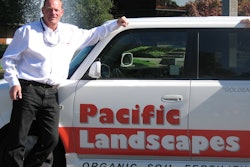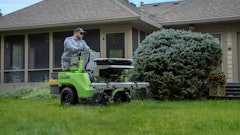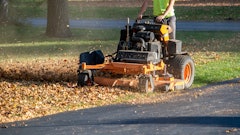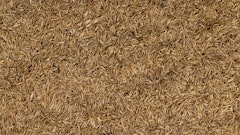The market for organic lawn care is growing as some states set standards, and residents in other states become more environmentally conscious. Providing organic products offers contractors a chance to market themselves toward this niche market.
“The market definitely seems to be growing here,” says Tim Waterworth of landscaping company Barnes Inc. in Madison, WI. “This is a new venture for us. There is a push across the country to ban traditional lawn care. Some areas in Canada have already banned it.”
The Organic Market
The market for organic products has grown in recent years as the “Green Movement” took charge. Homeowners are more concerned about the chemicals present in synthetic fertilizers and the impact they have on the environment, people and pets.
“There is a significant increase in the trend among homeowners to request or even demand alternatives to synthetic chemical fertilizer programs from their lawn care operators,” says David Flannery of Converted Organics Inc. “Lawn care contractors can either lead or they can follow.”
As the demand continues to grow, Flannery suggests contractors get ahead of the game. If the use of organic or all-natural materials becomes a requirement, property owners will likely turn to those who have been effectively using the products.
There are many regions in the U.S. where there is more demand for organic materials than in others. According to Flannery, the Northeast, Mid-Atlantic and West Coast have a very strong organic demand. In parts of the South and Midwest, demand is not as strong.
Comparing Organic to Non-organic
While organic fertilizer may be thought of as more expensive, there is a cost savings in the end. “Organic fertilizers and overall programs are normally higher in price than inorganic/synthetic fertilizers during the first season of use, but costs associated with fertilization and overall material input dramatically decrease over succeeding seasons while still maintaining a high-quality lawn,” says Flannery. “Over time, contractors can use less material on each lawn, and that is when they are going to realize cost savings and cost improvements.”
“There has been interest, but with the economy the pricing may not be favorable for everyone who is asking for bids,” says Waterworth. “Organic fertilizer is generally more expensive.”
Waterworth understands that the results from organic lawn care are not instant since the organic materials need to decompose first. “The breakdown from decomposition causes the actual release of nutrients,” says Waterworth. “The nutrients ultimately feed the micro-organisms which multiply. Micro-organisms in large numbers are favorable in a lawn, and help feed on thatch and reduce disease problems. Non-organic lawn care increases salt levels and also reduces micro-organism numbers from pesticides.”
Getting the Right Start
The thing that will sell organic lawn care to customers is the level of safety associated with the materials. The thing makes contractors want to get involved is the opportunity to be diverse in their service offering.
“A business needs to be as diversified as much as possible and offer services that appeal to all,” says Waterworth. “Our business benefits greatly from offering organic lawn care options.”
The thing to consider when getting into organic lawn care is communication with your customers ,and receiving support from your partners to develop programs that are right for you.
“We offer professional consulting on all facets of lawn and landscape maintenance on a personal level with our director of research and development, Dr. William A. Torello,” explains Flannery. “He is available for email or telephone calls daily and interacts with lawn care companies on a first hand basis to get them up and running with our products.”
Converted Organics Inc. offers customers numerous options in terms of quantities and packaging, as well as marketing with lawn signs. They work with contractors to decide which products will work best for them, and formulate programs on how frequently to apply and at what application rates.
In working with customers, contractors should evaluate the type of soil and its health, with a soil chemical and physical test, before laying out a plan for how much and how often organic fertilizers should be used to build a healthy, sustainable soil. It is also important to explain the time needed for effectiveness to the customer. “In the first year, organic products are not going to eliminate weeds,” says Flannery. “If you don’t explain that to a customer, they may complain. Contractors and their customers need to be committed to the environmental benefits associated with an organic product.”



















